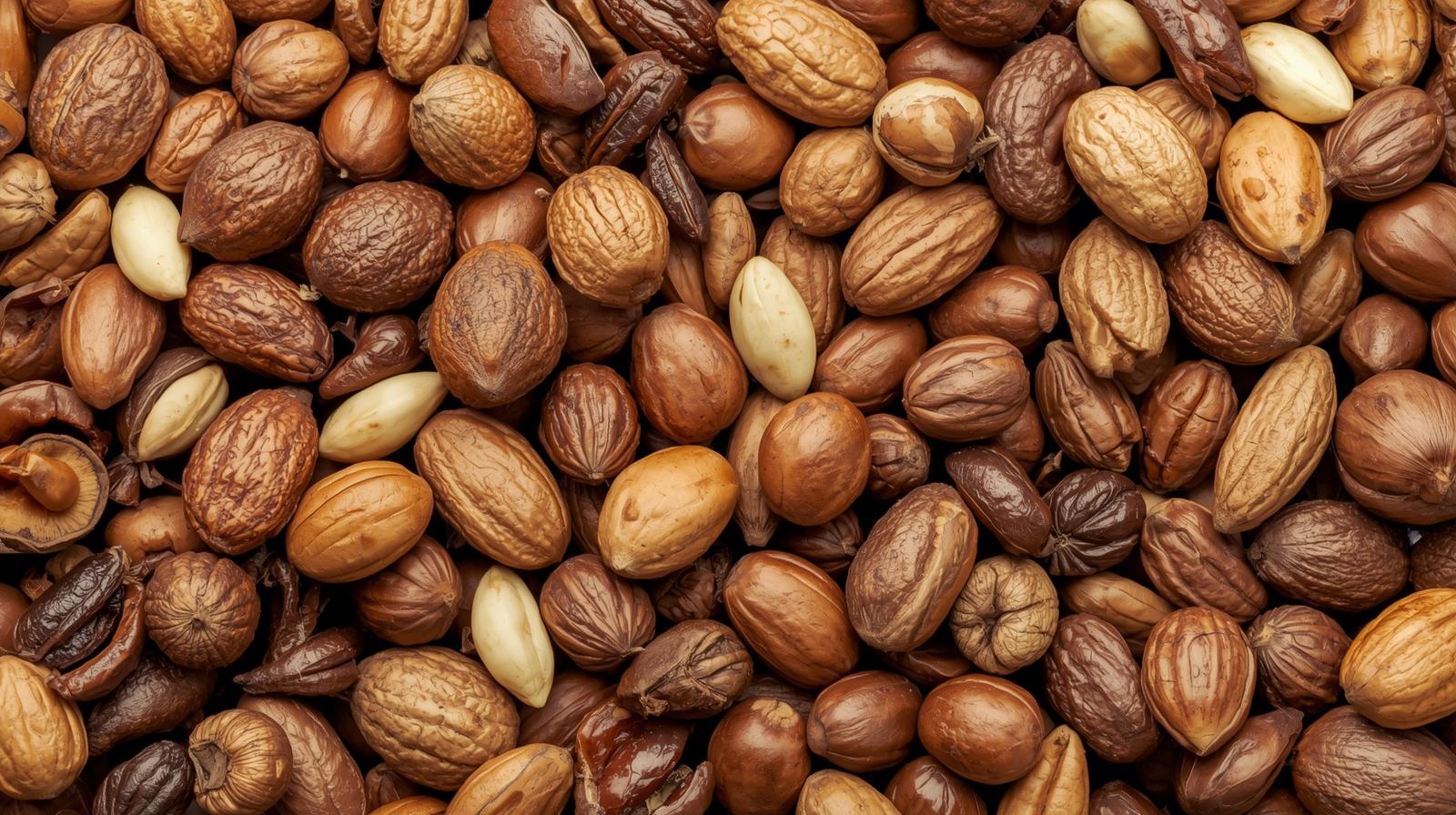The Importance of Protein after 50
Introduction: Protein - The Building Block of Life
Protein is an essential macronutrient, often hailed as the building block of life. It plays a crucial role in virtually every bodily function, from building and repairing tissues to producing enzymes and hormones. While important for everyone, protein becomes even more critical as we age, particularly for individuals over 50. This is because age-related physiological changes can impact protein metabolism and utilization, making adequate intake paramount for maintaining health, strength, and overall wellbeing.
This blog post delves into the significance of protein, exploring its multifaceted roles in the body and highlighting why it's especially vital for those navigating their golden years. We'll unpack the science behind protein needs, debunk common myths, and provide practical tips on how to incorporate sufficient protein into your diet to thrive after 50.
Why Protein Matters: The Core Functions
Protein's importance stems from its diverse functions within the human body. Let's explore some of the key roles:
- Muscle Maintenance and Growth: Protein is the primary component of muscle tissue. As we age, we naturally experience a decline in muscle mass, a condition known as sarcopenia. Adequate protein intake, combined with resistance exercise, helps to preserve and even rebuild muscle mass, which is crucial for maintaining strength, mobility, and balance.
- Bone Health: While calcium often steals the spotlight, protein is equally important for bone health. It contributes to bone density and strength, reducing the risk of osteoporosis and fractures, which become more prevalent with age.
- Immune Function: Protein is essential for building and maintaining a robust immune system. Antibodies, which defend the body against infections, are made of protein. Adequate protein intake ensures that the immune system can function optimally.
- Enzyme and Hormone Production: Enzymes, which catalyze biochemical reactions, and hormones, which regulate various bodily functions, are both protein-based. Protein deficiency can disrupt these vital processes.
- Tissue Repair and Wound Healing: Protein is critical for repairing damaged tissues and healing wounds. This is especially important for older adults, who may experience slower healing rates.
- Satiety and Weight Management: Protein is more satiating than carbohydrates or fats, meaning it helps you feel fuller for longer. This can be beneficial for weight management, as it can reduce overall calorie intake.

Protein Needs After 50: Why They Increase
The recommended dietary allowance (RDA) for protein is 0.8 grams per kilogram of body weight per day for adults. However, research suggests that individuals over 50 may require more protein to maintain muscle mass, bone health, and overall function. Several factors contribute to this increased need:
- Age-Related Muscle Loss (Sarcopenia): As mentioned earlier, sarcopenia is a significant concern for older adults. Higher protein intake, combined with strength training, can help mitigate muscle loss.
- Reduced Protein Digestion and Absorption: Some older adults may experience decreased stomach acid production, which can impair protein digestion and absorption. This means they need to consume more protein to ensure adequate utilization.
- Decreased Anabolic Response: The anabolic response, which is the body's ability to build and repair tissues, tends to decline with age. Higher protein intake can help stimulate this response and promote muscle protein synthesis.
- Increased Risk of Chronic Diseases: Older adults are often at higher risk of chronic diseases, such as diabetes, heart disease, and kidney disease. Adequate protein intake can play a role in managing these conditions and supporting overall health.
So, how much protein do you actually need after 50? While individual needs vary based on activity level, health status, and other factors, many experts recommend a protein intake of 1.0 to 1.2 grams per kilogram of body weight per day for older adults. This translates to approximately 70-84 grams of protein per day for a 70kg (154lb) individual. Consult with a healthcare professional or registered dietitian to determine your specific protein needs.
Debunking Protein Myths: Separating Fact from Fiction
Several misconceptions surround protein consumption. Let's address some of the most common myths:
- Myth: High-protein diets are bad for your kidneys.
Fact: While individuals with pre-existing kidney disease need to manage their protein intake, high-protein diets are generally safe for individuals with healthy kidneys. Research suggests that adequate protein intake may even help preserve kidney function in older adults. - Myth: You can only get enough protein from meat.
Fact: Many plant-based foods are excellent sources of protein. Legumes, tofu, tempeh, nuts, seeds, and whole grains can all contribute to your daily protein intake. - Myth: You need to consume protein immediately after a workout to build muscle.
Fact: While consuming protein after exercise is beneficial, the timing is less critical than overall daily protein intake. Focus on distributing your protein intake throughout the day. - Myth: All protein sources are created equal.
Fact: Protein sources vary in their amino acid profiles. Complete proteins, found in animal products and some plant-based foods like quinoa and soy, contain all nine essential amino acids. Combining different plant-based protein sources can ensure you obtain all the essential amino acids you need.
Protein-Rich Foods: A Diverse and Delicious Palette
Incorporating sufficient protein into your diet doesn't have to be a chore. Numerous delicious and versatile foods are packed with protein. Here's a breakdown of some excellent sources:
Animal Sources:
- Lean Meats: Chicken breast, turkey, lean beef, pork tenderloin
- Fish and Seafood: Salmon, tuna, cod, shrimp, shellfish
- Eggs: A versatile and affordable protein source
- Dairy Products: Greek yogurt, cottage cheese, milk, cheese
Plant-Based Sources:
- Legumes: Lentils, beans (black beans, kidney beans, chickpeas), peas
- Tofu and Tempeh: Soy-based protein sources that can be used in a variety of dishes
- Nuts and Seeds: Almonds, walnuts, peanuts, chia seeds, flaxseeds
- Whole Grains: Quinoa, brown rice, oats
- Protein Powders: Whey, casein, soy, pea, rice
Tips for Protein Intake
Try spreading protein intake throughout the day to optimize muscle protein synthesis. This can be acheived by including a source of protein in every meal, and in snacks between meals.

Practical Tips for Boosting Protein Intake After 50
Here are some easy and effective strategies to increase your protein intake:
- Start your day with a protein-rich breakfast: Opt for eggs, Greek yogurt with nuts and seeds, or a protein smoothie.
- Add protein to your salads: Top your salads with grilled chicken, fish, tofu, or beans.
- Snack smart: Choose protein-rich snacks like hard-boiled eggs, nuts, seeds, or cottage cheese.
- Incorporate legumes into your meals: Add lentils to soups, beans to chili, or chickpeas to salads.
- Use protein powder: Add protein powder to smoothies, oatmeal, or baked goods.
- Plan your meals in advance: Planning your meals can help ensure you're meeting your protein needs.
- Read nutrition labels: Pay attention to the protein content of the foods you're eating.
- Consider a protein supplement: If you're struggling to meet your protein needs through diet alone, a protein supplement may be helpful. Consult with a healthcare professional before taking any supplements.

Protein and Exercise: A Synergistic Partnership
Protein and exercise, particularly resistance training, work synergistically to promote muscle growth and strength. Resistance training, such as lifting weights or using resistance bands, stimulates muscle protein synthesis, the process by which the body repairs and builds muscle tissue. Adequate protein intake provides the building blocks necessary for this process.
Aim for at least two to three strength training sessions per week, focusing on major muscle groups. Combine resistance training with a balanced diet that includes sufficient protein to maximize muscle growth and strength gains. This is particularly important as we age, when maintaining muscle mass becomes crucial for mobility, balance, and overall function.
Potential Risks and Considerations
While adequate protein intake is generally beneficial, it's important to be aware of potential risks and considerations:
- Kidney Disease: Individuals with pre-existing kidney disease should consult with a healthcare professional or registered dietitian to determine their appropriate protein intake.
- Gout: High-protein diets, particularly those rich in red meat, may exacerbate gout symptoms in susceptible individuals.
- Digestive Issues: Some individuals may experience digestive issues, such as bloating or constipation, with very high protein intakes. Increasing fiber and fluid intake can help mitigate these issues.
- Individual Needs: Protein needs vary based on activity level, health status, and other factors. Consult with a healthcare professional or registered dietitian to determine your specific protein needs.
Conclusion: Embracing Protein for a Healthier, Stronger You
Protein is a vital nutrient that plays a crucial role in maintaining health and wellbeing, especially for individuals over 50. By understanding the importance of protein, debunking common myths, and incorporating protein-rich foods into your diet, you can fuel your body, preserve muscle mass, support bone health, and thrive in your golden years. Remember to consult with a healthcare professional or registered dietitian to determine your specific protein needs and address any underlying health concerns. Embrace the power of protein and embark on a journey towards a healthier, stronger, and more vibrant you!

